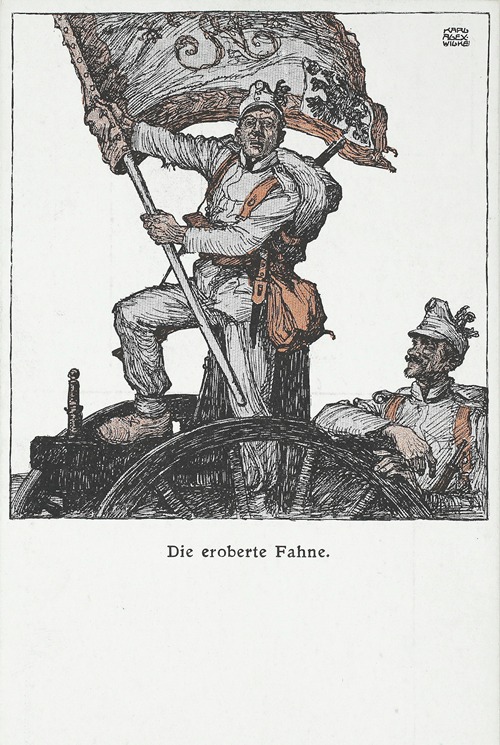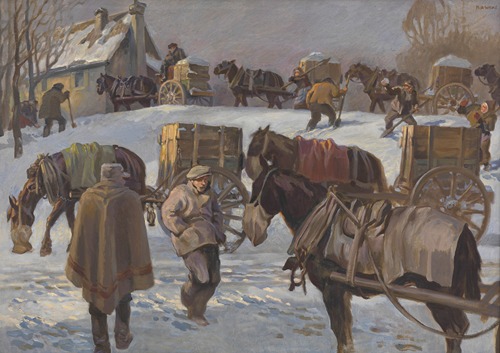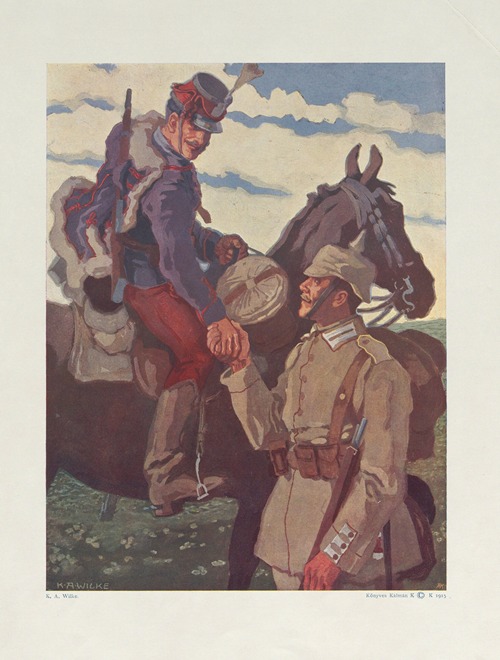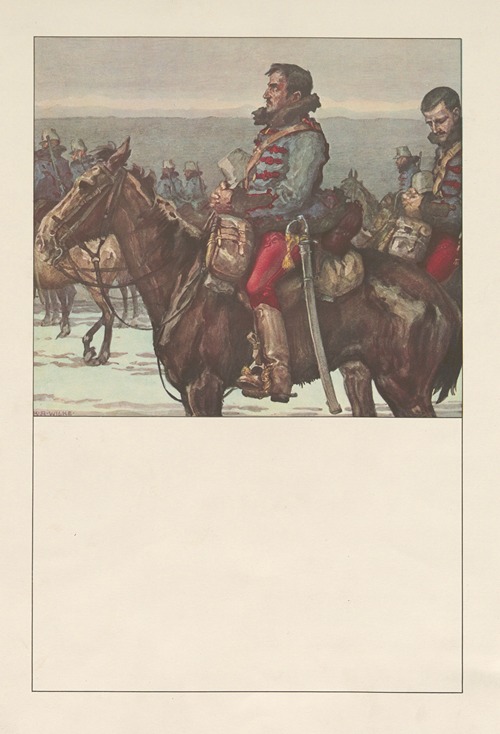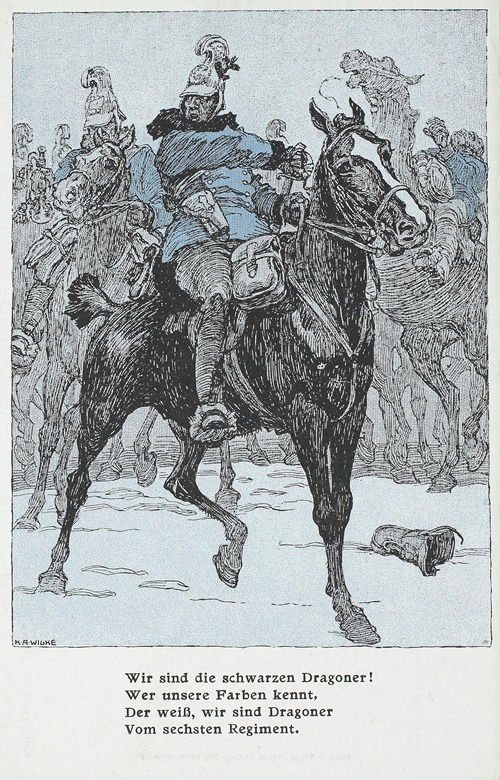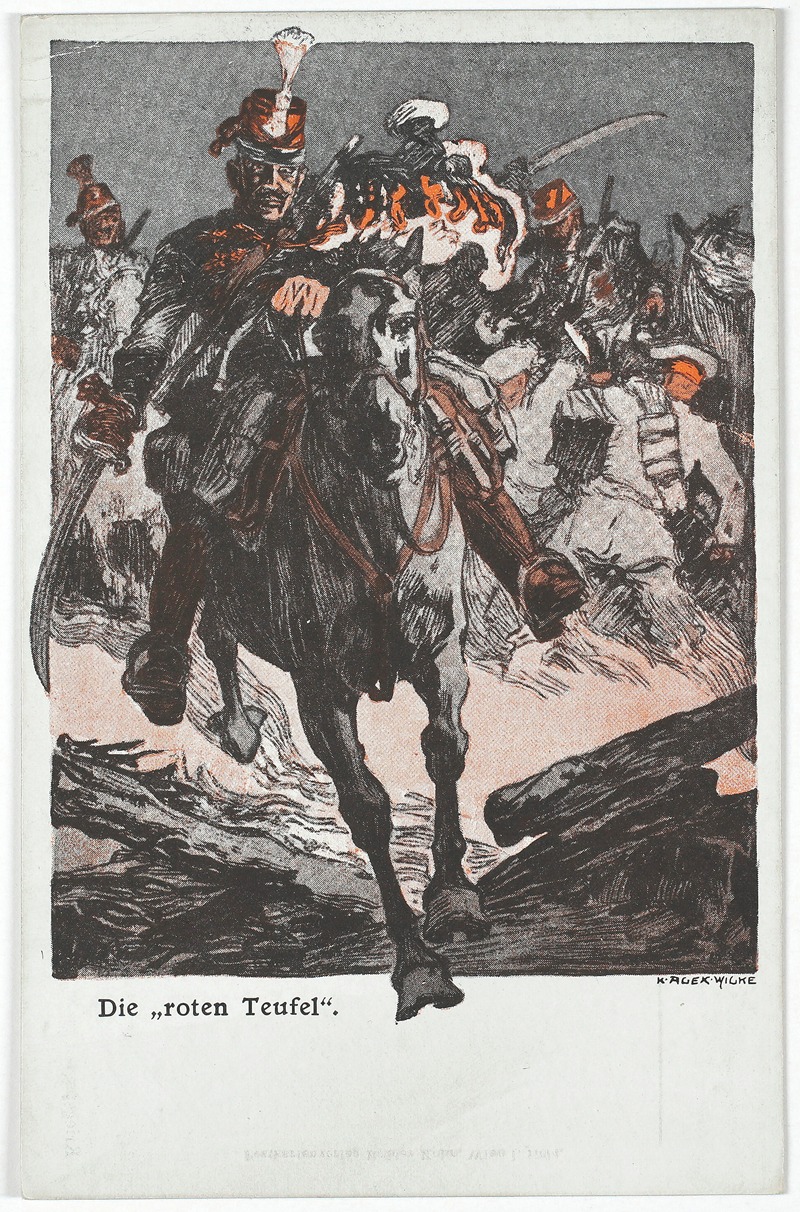
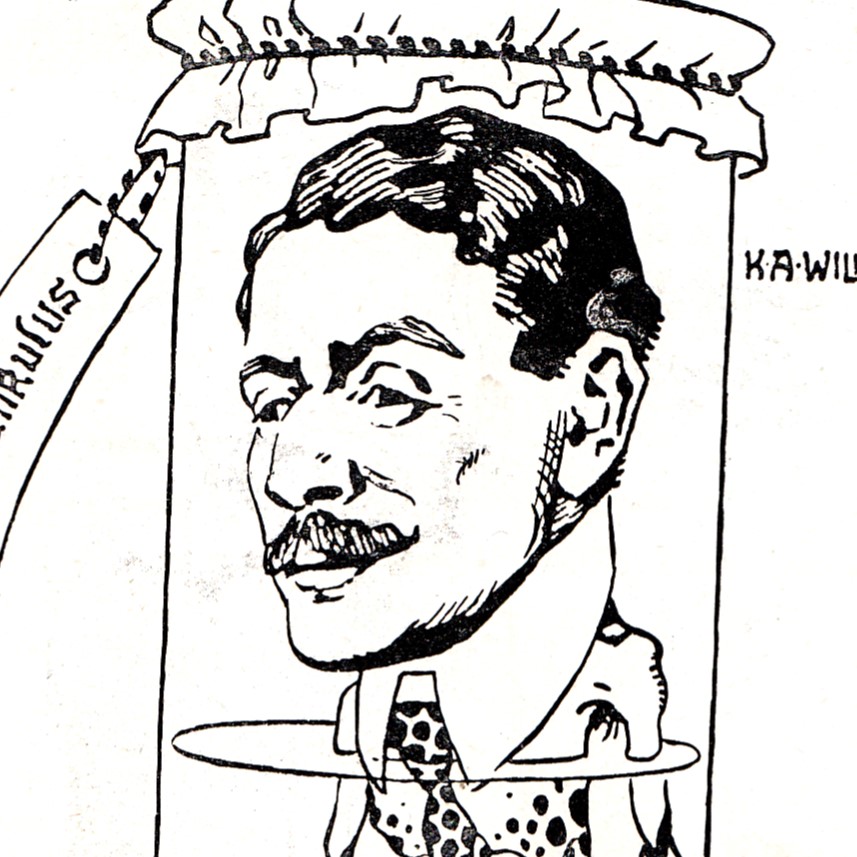
Karl Alexander Wilke was a German-Austrian painter, illustrator, and stage designer.
Wilke studied from 1898 to 1902 with Ludwig Nieper at the Academy of Fine Arts in Leipzig, from 1902 to 1903 in Karlsruhe with E. Schruth, and again in Leipzig in 1902 with Max Seliger. From November 1903, he worked in Vienna. From 1904 to 1907, he was an employee of the magazine Der Scherer – the first illustrated Tyrolean satirical magazine for politics, art, and life. From 1905 to 1918, he was an employee of the magazine Die Muskete. From 1913 to 1923, he worked as head of set design at the Burgtheater in Vienna. Among other things, he designed book covers and dust jackets, e.g. for the Wiener Literarische Anstalt, Leopold Stocker Verlag (from 1938), Burgverlag, Amalthea-Verlag, Konegens Kinderbücher, and Friedrich Wallisch's Die Gewalt. Ein Frauenschicksal aus höfischer Zeit (A Woman's Fate from Courtly Times). (Europäischer Verlag, Vienna 1925), Robert Hohlbaum: Das Paradies und die Schlange (Paradise and the Serpent). Staackmann, Leipzig 1928.
From 1923 to 1938, he was active as an illustrator and artistic advisor at the Austrian Federal Publishing House. Wilke joined the NSDAP on June 24, 1932 (membership number 1,086,707) and was appointed acting director of the Austrian Federal Publishing House by the NSDAP's regional cultural director, Hermann Stuppäck, three days after the annexation of Austria. The publishing house was then renamed Österreichischer Landesverlag, formerly Österreichischer Bundesverlag, and its publishing program was described in the Börsenblatt für den Deutschen Buchhandel as follows: “Regional studies. Maps. World War II wall charts. Landscape. Folklore and customs. History. Song. Art and poetry of the Ostmark have been cultivated areas of the publishing house for many years.”
From 1908 to 1910, he was a member of the Hagenbund, and from 1941 of the Künstlerhaus Wien. He was close to Karl Hans Strobl. He was buried in the Protestant section of the Vienna Central Cemetery. The grave has already been abandoned.
